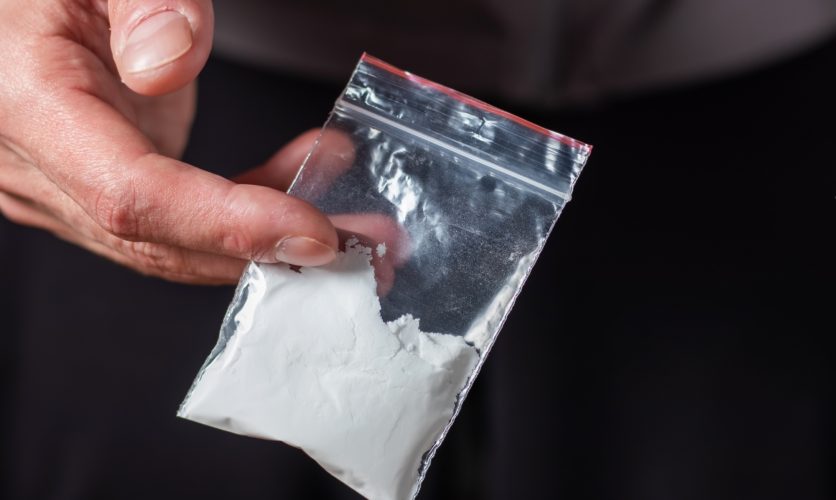How Addictive is Cocaine?
According to the National Institute on Drug Abuse, cocaine is a “powerfully addictive” drug. Whether it’s the first time or habitual, there are immediate and long-term effects of cocaine use that can ultimately lead to drug addiction.
What is Cocaine?
Cocaine, derived from coca plant leaves, is a euphoria-producing drug with a high potential for abuse. Although cocaine is rarely used in the healthcare industry in the United States as local anesthesia, it is most commonly available as a street drug. Cocaine, also known as blow, coke, or snow, is manufactured in illicit labs outside of the U.S. and is illegal, extremely dangerous, and can be deadly.
The pure, crystalline white powder is often diluted or cut with other powders like cornstarch or talcum powder, dangerous chemicals like laundry detergent, and synthetic opioids, including fentanyl, to stretch the amount of product and increase profits for the drug dealers. The powder form of coke can be inhaled through the nose (snorting) or dissolved in water and injected into a vein.
Cocaine is further processed and combined with baking soda to create rock crystals, referred to as crack cocaine. Crack is smoked using a glass pipe.
How Cocaine Use Leads to Addiction
Smoking crack or the intravenous injection of cocaine sends the drug into the bloodstream, which quickly travels to the brain, flooding its rewards center with dopamine, a feel-good chemical. The rapid buildup of dopamine causes an immediate 'rush' of energy and feelings of extreme joy, confidence, and happiness. Snorting takes closer to several minutes to achieve the same effect, but the high can last between 10 and 30 minutes.
The surge of dopamine from cocaine disrupts the brain’s circuitry and limits its natural ability to create the chemical. Thus, the brain seeks an external source of dopamine, driving the person to take more cocaine. The more often a person uses the drug, the more they crave it, and the harder it is to control the use. The mind and body become dependent on the drug, and addiction develops. Unable to resist the cravings, cocaine users must take more potent and frequent doses to achieve the same feeling of bliss and obtain relief from withdrawal symptoms.
Crack produces a higher level of dopamine, leading crack users to become quickly addicted. The immediate and powerful euphoric effect makes crack very popular among people looking for a mood-altering drug.
Signs of Cocaine Addiction
There is a wide range of indicators that someone is addicted to cocaine. Someone addicted to cocaine may be secretive about their whereabouts, spend more time in private, and family and friends may notice valuables and money are missing.
Those struggling with addiction experience constant thoughts about the next time they will use cocaine and, despite their best efforts, will not be able to stop -- despite the negative consequences the addiction has on their relationships and or finances falling apart. They need professional treatment to stop drug use. Below we explore more of the behavioral and physical signs.
Cocaine’s Behavioral Impact
Even short-term use of cocaine can cause mood-altering side effects and symptoms, including:
Euphoria
Feeling of invincibility
Heightened sexual interest and pleasure
Hyperactivity and high energy
Paranoia
Recklessness
Violence
Cocaine’s Physical Impact
The effects of cocaine use can lead to severe and long-lasting health conditions. The physical symptoms of cocaine addiction and use can range from uncomfortable symptoms like a runny nose to life-threatening issues like cocaine overdose and death. Physical side effects include:
Chest pain
Heart attack, stroke, or seizures
High blood pressure
Increased body temperature
Increased heart rate
Kidney disease
Lung damage
Runny nose, and nosebleeds
How Addictive is Cocaine?
Very! Although you may not be addicted to cocaine after just one use, using cocaine is a gamble. Like opioids and meth, cocaine becomes harder to resist each time you use it. Cocaine's highly addictive potential is enhanced by how good you feel when high and how bad you feel after the effects wear off. Because of this “crash,” there is an increased risk of binging or taking back-to-back doses to maintain the high and limit the crash.
The rate of how quickly addiction develops depends on a variety of factors including the person’s mental health, the frequency of use and dosage, genetics, and environment. People with a history of substance abuse in their families are at higher risk.
Caron Treatment Centers for Substance Use Disorder Recovery
Cocaine addiction doesn’t just affect the person with the substance use disorder – it affects family, friends, and coworkers. Caron Treatment Centers can help. Caron’s team of experts creates comprehensive and individualized treatment programs, including medically supervised detox and individual, group, family, and behavioral therapy.
If you or a loved one needs help with cocaine addiction, we are ready to help. Call 1-833-840-0010 or contact us online to learn more about Caron’s substance abuse treatment.
Continue Learning About How Addictive is Cocaine?
Take the next step:
Start a conversation
Start with an online form
-
Caron in Pennsylvania
1-800-854-6023 -
Caron in Florida
1-800-221-6500 -
Breakthrough at Caron
1-800-213-7834




